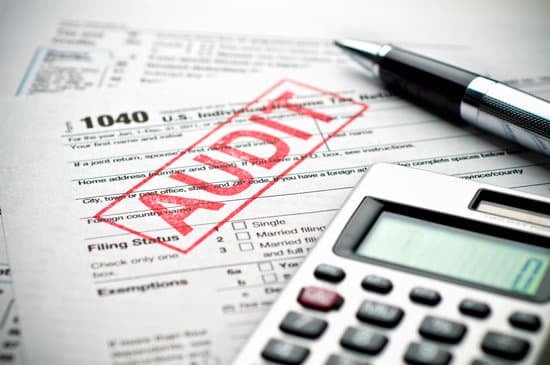Powell Tax Law Blog

How to Prepare for an IRS Audit
Nothing strikes fear in the heart of the American taxpayer than the threat of an IRS audit.
The good news is that the odds of getting audited, while greater than winning the lottery, are quite slim with Syracuse University’s TRAC research center estimating 3.8 audits per every 1,000 returns in FY 2022.
With 165 million individual income tax returns filed last year, the IRS audited 626,204 returns – mostly by correspondence (532,609) – and less than 100,000 (93,595) regular office or field audits.
“There are only about 6,500 front-line, revenue agents who are in the field performing these types of exams,” explained the IRS last spring about declining regular audits in favor of letters to the taxpayer. “These resource limitations result in levels of enforcement activity at the high-end of the distribution, particularly for global high net-worth individuals, large corporations, and complex structures like partnerships are far lower than in the past. Indeed, overall audit rates for those high-end returns have substantially declined over a seven-year period.”
Lower Income Taxpayers Have Higher Audit Rates
Some lower income taxpayers, or those with no income reported, have higher audit rates than wealthy Americans.
The IRS “Tax Year 2019 Audit Rates Over Time” shows that:
- Returns that claimed the earned income tax credit (EITC) for the lowest income taxpayers had a 0.8 percent audit rate.
- Returns with no total positive income had a 1.1 percent audit rate.
- Taxpayers making between $25,000 and $500,000 had just a 0.2 percent audit rate.
- Even those making $500,000 to $1 million had an audit rate (0.6 percent) below those claiming the ETIC or no total positive income.
National Taxpayer Advocate Erin M. Collins, in her annual report to Congress, asserted that there is a fundamental unfairness in the situation faced by these low-income taxpayers who have complex issues involved with substantiating the anti-poverty earned income tax credit.
“If the IRS does not receive a response [to the letters it sends], it will generally disallow the item(s) claimed and ultimately issue a Notice of Deficiency,” wrote Collins. “The IRS correspondence audit process is structured to expend the least amount of resources to conduct the largest number of examinations – resulting in the lowest level of customer service to taxpayers having the greatest need for assistance.”
A team of tax experts such as those assembled by Powell Tax Law can help taxpayers in any income group prepare for an IRS audit.
“Our team can quickly explain the type of audit you are facing, and recommend a proven course of action that will see you through the event, saving you time and stress,” explained Steve Powell, who has been practicing law for 23 years in Texas and is licensed to represent clients in the United States Tax Court. “No matter what type of audit you face, the decision to engage the services of a tax professional is the smartest decision you can make.”
Take These Steps if You Receive an IRS Audit Letter
If you're facing an IRS audit, the best course of action is to be prepared. Here are some steps you can take to prepare for an IRS audit:
Review the IRS Letter: The first thing you should do when you receive an IRS audit notice is to review it carefully. The letter should explain the reason for the audit, the specific items the IRS will be examining, and any deadlines you need to meet.
Understand the Scope of the Audit: Make sure you understand the specific items the IRS is auditing and gather all relevant documents related to those items.
Know Your Rights: Read IRS Publication 1, explaining the Taxpayers' Bill of Rights, prior to your audit. Research tax legal issues by using free IRS publications and commercial tax guides.
Seek Professional Help: If you're not confident in your ability to handle the audit on your own, consider hiring a tax professional such as a tax attorney, CPA, or enrolled agent. They can help you navigate the audit process and represent you in front of the IRS.
Gather Your Records: Gather all the relevant documents and records that support the income, deductions, and credits on your tax return. This includes receipts, bank statements, invoices, cancelled checks, and any other documents that show how you arrived at the numbers on your tax return.
Organize Your Records: Once you've gathered your records, organize them in a way that makes it easy to find the information the IRS is looking for. Label each document and create a table of contents to help the auditor navigate through your records.
Review Your Tax Return: Review your tax return to identify any errors or inconsistencies that may raise a red flag with the IRS. If you find any errors, be prepared to explain them to the auditor.
Be Prepared to Travel: If you are the subject of a regular IRS audit try to avoid holding the audit at your business or home but instead go to the IRS, and ideally let your tax professional handle it.
Be Prepared to Negotiate: If the auditor finds errors or discrepancies in your tax return, be prepared to negotiate with the auditor to reach a resolution. You may be able to settle the audit by agreeing to pay additional taxes, penalties, and interest.
Be Cooperative and Responsive: Be cooperative and responsive to the IRS auditor's requests. Provide information and documents in a timely and organized manner.
Don't Provide More Information Than Necessary: Be honest and forthright, but do not provide more information than necessary. Stick to the specific items being audited and do not volunteer additional information or documentation unless requested. Most tax pros advise clients to not talk any more during the audit than is necessary.
“Remember, the key to surviving an IRS audit is to be organized, prepared, and cooperative,” said Powell. “With the right preparation and attitude, you can get through the audit process with minimal stress and hassle.”



.webp?width=500&name=thumbnail_large-1(2).webp)



